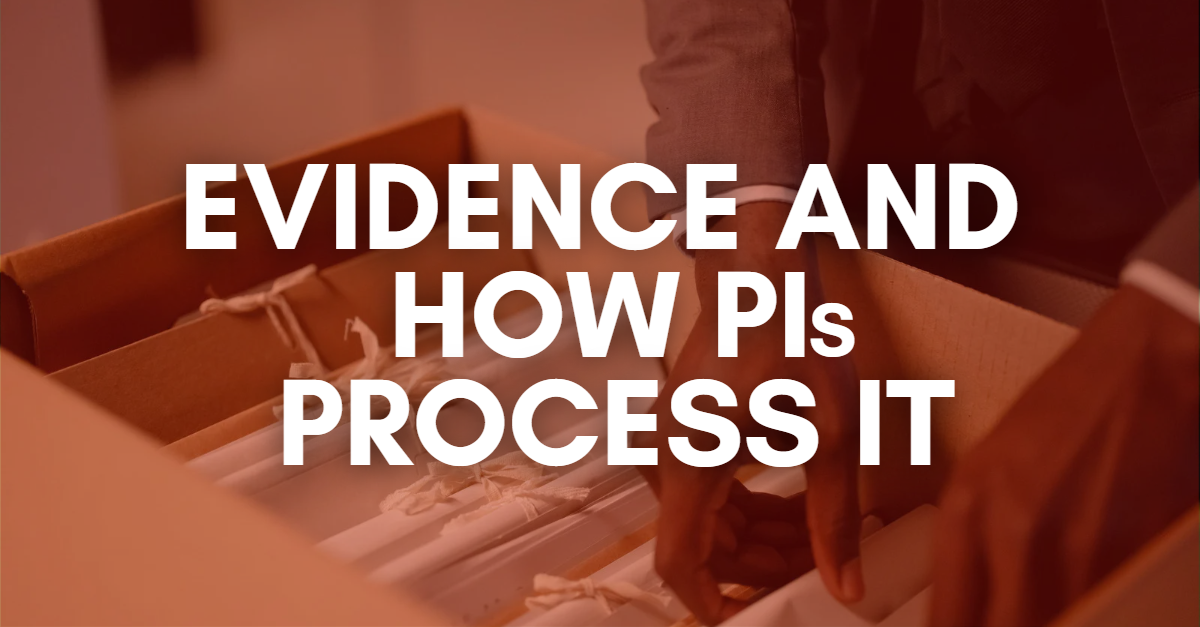Private investigators play an important role in the legal system, by gathering evidence their attorneys can use in court. It is a critical part of any legal case. Private investigators often work to uncover clues that can help build a strong case for their clients. In this blog, we will discuss how private investigators prepare evidence for use in court.
What private investigators take into account whilst collecting evidence
Below we delineate the most vital things private investigators keep in mind when preparing documents for their clients in court:

- Admissibility of Evidence: The first step in preparing these documents for use in court is to ensure that it is admissible. Courts determine admissibility via a number of factors, including relevance, reliability, and authenticity. Private investigators must ensure that the evidence they gather meets these criteria.
- Gathering proof: Private investigators gather evidence using a variety of methods, including surveillance, interviews, and research. They may observe a person’s activities, review financial records, or conduct background checks. They may also collect physical proof, such as fingerprints or DNA samples.
- Documenting: Once PIs gather evidence, they must document it in a way that is clear, concise, and accurate. Private investigators then create detailed reports to describe the data they have gathered, including the date and time of collection, the method used to collect it, and any relevant details.
Testimony and working with attorneys
Besides gathering this important information, PIs must also log its movements effectively and provide information on how they have processed it.

- Chain of Custody: Chain of custody refers to the process of documenting the movement of evidence from the time it is collected until it is presented in court. Private investigators ensure that they properly document the chain of custody and store the evidence securely to prevent tampering or contamination.
- Expert Testimony: In some cases, the court may call on private investigators to testify as expert witnesses. They may ask PIs to explain how they gathered and analyzed evidence, or to offer their professional opinion on a particular matter. Private investigators must be prepared to present their findings in a clear and convincing manner.
- Working with Attorneys: Private investigators often work closely with attorneys to prepare evidence for use in court. They may provide guidance on the types of data that will be most helpful, or offer advice on how to present the documentation in a way that is persuasive to a judge or jury.
In conclusion, private investigators play a vital role in preparing evidence for use in court. They gather, document, and present proof in a way that is admissible and persuasive. If you are in need of evidence for a legal case, consider hiring a private investigator. They have the skills and experience necessary and will perform the job according to proper procedure.
Learn more about what we do and why you should hire an experienced private investigator. Simply click on this link to get in contact with one of our team members.










